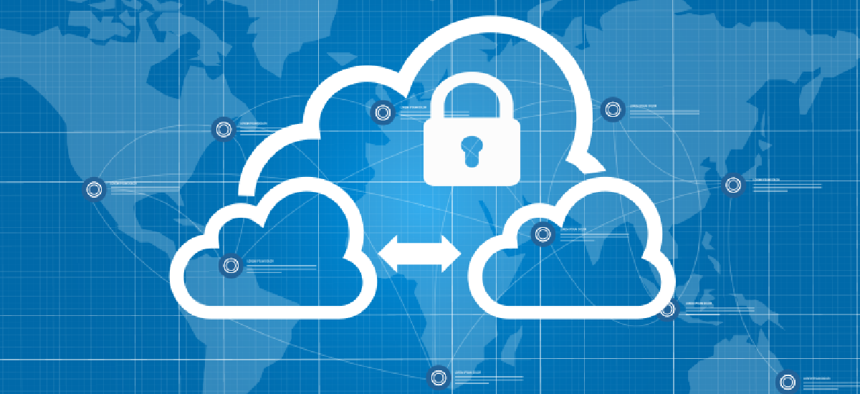FedRAMP may satisfy some security requirements for DOD contractors, security chief says


Connecting state and local government leaders
To ease the transition to its Cybersecurity Maturity Model Certification program for defense contractors, the Pentagon is considering granting reciprocity to vendors with the Federal Risk and Authorization Management Program.
As the Pentagon marches toward a unified cybersecurity standard for contractors, it is considering granting at least partial reciprocity with the Federal Risk and Authorization Management Program (FedRAMP) to ease the transition, according to Katie Arrington, DOD’s special assistant for cyber to the assistant secretary of defense for acquisition.
Speaking at FCW’s Nov. 14 CDM Summit, Arrington said the Cybersecurity Maturity Model Certification (CMMC) program could allow for a reciprocity process with FedRAMP, the government cloud security certification program. “I think that there's a lot of reciprocity to be had there because it's an investment that you've already made," she said.
The security chief also stressed that certification was “go or no go” and that a company that’s supposed to be following NIST 171 requirements but is only doing 80% of the controls won’t make the CMMC cut. But, if possible, FedRAMP reciprocity would mean contractors won’t completely lose out on their prior investment, she said.
She also stressed that the new approach should allow contractors to command a higher price for their more-secure services. “In a context where I'm putting the CMMC as a technical requirement, I understand that there's an assumed cost to it,” Arrington said.
She also emphasized that CMMC will eventually be required for anyone who wants to do business with the Defense Department, regardless of their current contracts or relationships.
The vast majority of the 300,000 firms that make up the defense industrial base will need only CMMC level 1 certification, which Arrington described “basic controls you should be doing everyday anyway.”
Existing contracts can't easily be altered, and DOD plans to start with a select group of 2020 acquisitions to work closely with the bidders on the CMMC process. “So if you’re in the supply chain," she said, "within the next five years, you are going to have to be certified. It just depends on when your [contract] comes up.”
But while CMMC will surely become the law of the cybersecurity landscape, Arrington was adamant that companies keep their certification status confidential.
“Don’t post your CMMC level certification on your website," she said, stressing that such information is both proprietary intellectual property and a potential security risk. “If [hackers] know you’re at level 2, they know they know you’re only doing these types of things,” and can tailor their attacks accordingly.
CMMC requirements will come part of DOD's requests for information by summer of 2020 and included in requests for proposals sometime in the fall.
This article was first posted to FCW, a sibling site to GCN.





